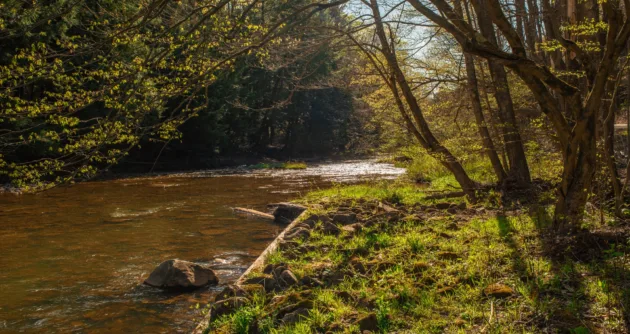Blocks Youngstown Drinking Water Protection Initiative from May ballot; community turns to Ohio Supreme Court
FOR IMMEDIATE RELEASE
CONTACT:
Tish O’Dell, Ohio Community Organize
440-552-6774
tish@celdf.org
YOUNGSTOWN, OHIO: For the second time in six months, the Mahoning County Board of Elections (BOE) unanimously blocked Youngstown residents from voting on a duly qualified citizen initiative entitled the Youngstown Drinking Water Protection Bill of Rights (Water Protection BOR). The measure was advanced by FrackFree Mahoning, a local community group. The group filed a lawsuit against the BOE with the Ohio Supreme Court on Friday. In an election case last October, the Court ruled in favor of Bowling Green residents, ordering their citizen initiative on the ballot.
Since 2013, Youngstown residents have worked with the Community Environmental Legal Defense Fund (CELDF) to protect the city from fossil fuel extraction and waste disposal and to defend their democratic right to vote. With each community effort, proponents are met with strong opposition from the oil and gas industry, local elected officials, and the media. CELDF has provided legal assistance to Youngstown residents, including filing last week’s lawsuit.
CELDF also assisted in drafting the Water Protection BOR. The proposed charter amendment includes protections for water maintenance funds. These funds are collected from residents in their water bills. Rather than using these funds solely for water and sewer infrastructure projects on behalf of the people, the city draws from it for private economic development. The Water Protection BOR prohibits this siphoning of the people’s money for private gain. Having the required number of signatures, the city council passed an ordinance ordering it on the ballot.
The BOE cited HB463 in its second denial of the right to vote on citizen initiatives. Ohio legislators quietly adopted HB463 in December 2016, granting BOEs the authority to block initiatives from the ballot based on content. However, last October the Ohio Supreme Court overturned portions of HB463, stating:
The boards of elections…do not have authority to sit as arbiters of the legality or constitutionality of a ballot measure’s substantive terms. An unconstitutional amendment may be a proper item for referendum or initiative. Such an amendment becomes void and unenforceable only when declared unconstitutional by a court of competent jurisdiction.
Lynn Anderson, one of the lead organizers, stated, “Our elected and appointed officials are not interested in protecting us, our water, or our water funds. Last October, the Wood County Board of Elections voted 4-0 to place the people’s Community Bill of Rights on the ballot because they recognized community members have the inalienable right to vote on their own initiatives. The Ohio Supreme Court agreed. Do we have less rights than the people in Bowling Green?”
CELDF’s Ohio community organizer Tish O’Dell stated, “For some reason this Board thinks that they are the administrative, legislative, and judicial branches of government all in one. The Court has already ruled that this is a violation of separation of powers. These residents are fighting not only for their right to clean water, but also their right to self-govern – to be the decision-makers in their community.”
Ohio Communities Part of Growing Movement
Ohio residents are advancing Community Rights as part of the broader Community Rights movement building across the U.S. Local communities and state Community Rights Networks are partnering with CELDF to advance and protect fundamental democratic and environmental rights. They are working with CELDF to establish Community Rights and the Rights of Nature in law, and prohibit fracking, factory farming, water privatization, and other industrial activities as violations of those rights.
Communities are joining together within and across states, working with CELDF to advance systemic change – recognizing our existing system of law and governance as inherently undemocratic and unsustainable. New Hampshire joins state Community Rights Networks in Colorado, Oregon, Ohio, and Pennsylvania, where residents are advancing Community Rights state constitutional amendments.
Additional Information
For additional information regarding petitioning communities, contact CELDF at info@celdf.org. To learn about the Ohio Community Rights Network, visit ohiocrn.org. To learn about the Community Rights Movement, visit www.celdf.org.
About CELDF — Community Environmental Legal Defense Fund
The Community Environmental Legal Defense Fund is a non-profit, public interest law firm providing free and affordable legal services to communities facing threats to their local environment, local agriculture, local economy, and quality of life. Its mission is to build sustainable communities by assisting people to assert their right to local self-government and the rights of nature.

